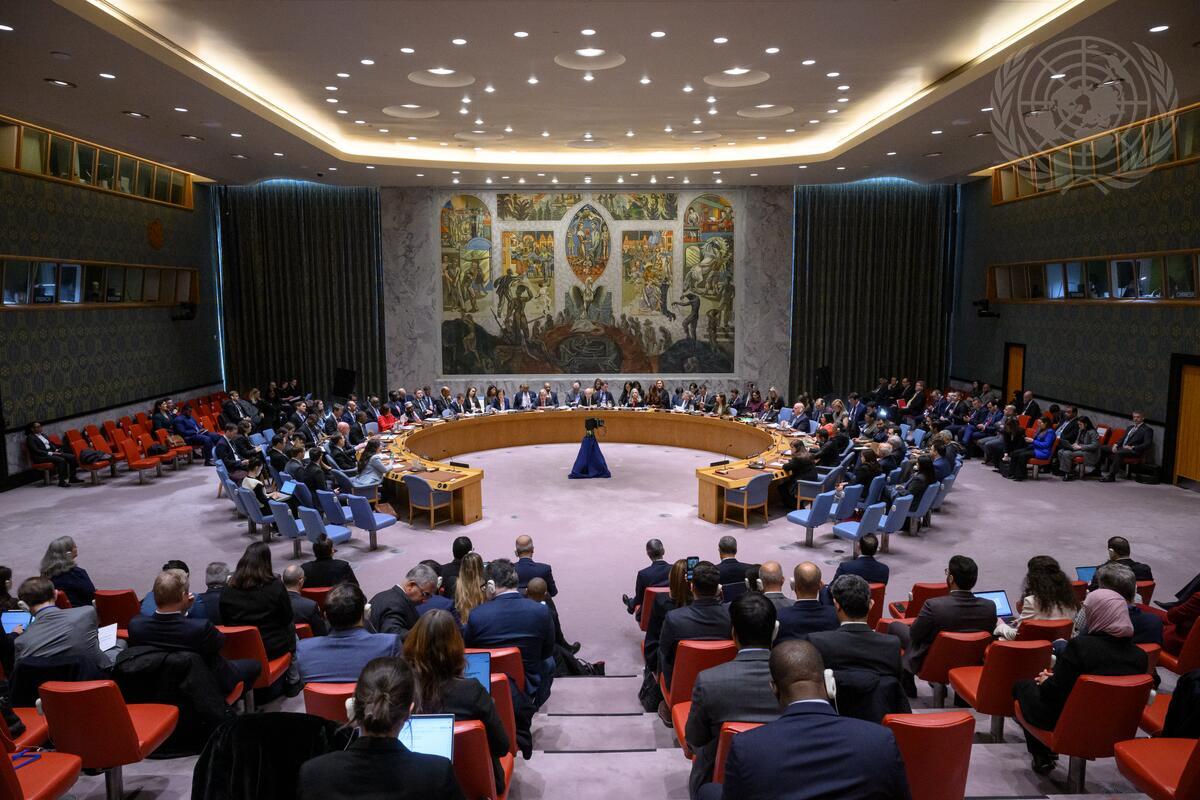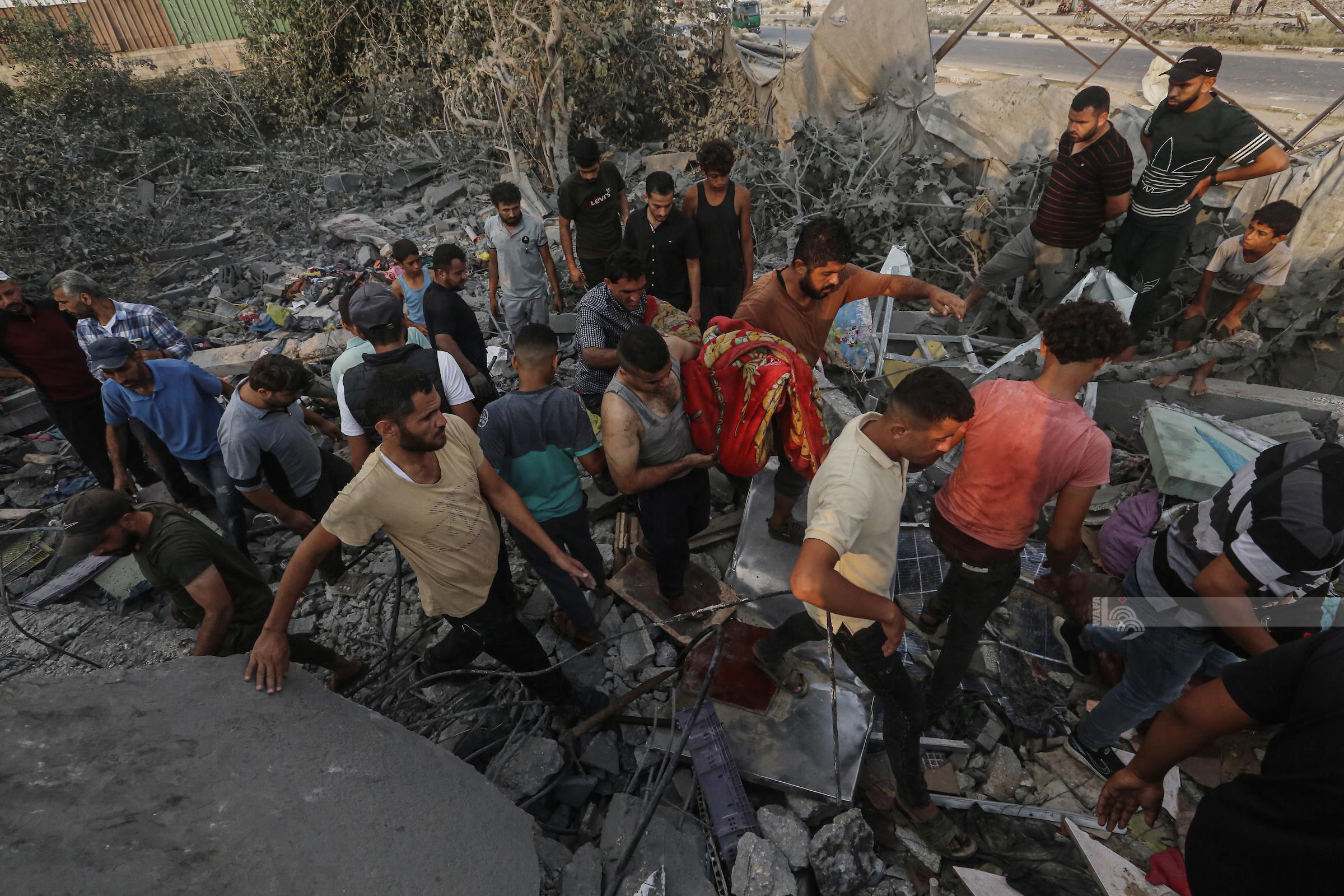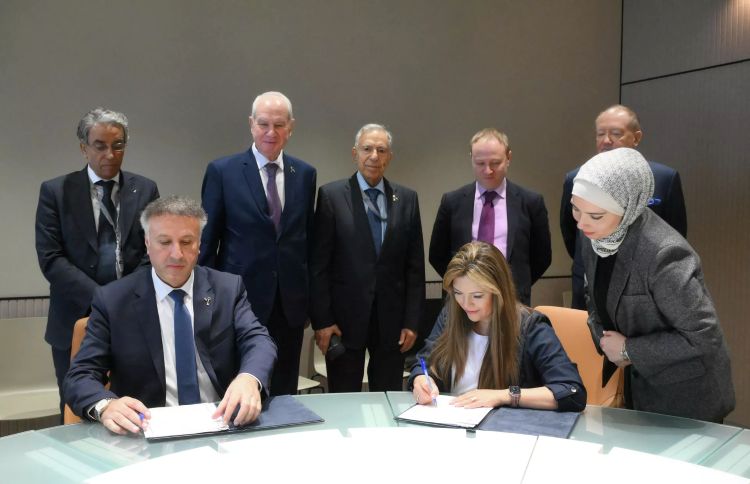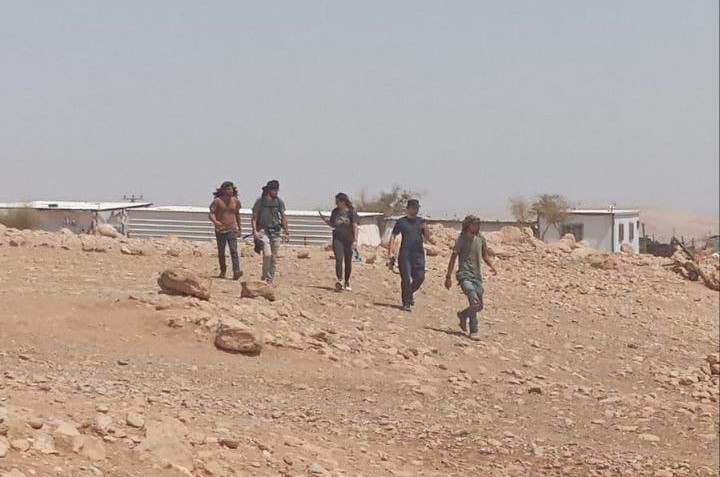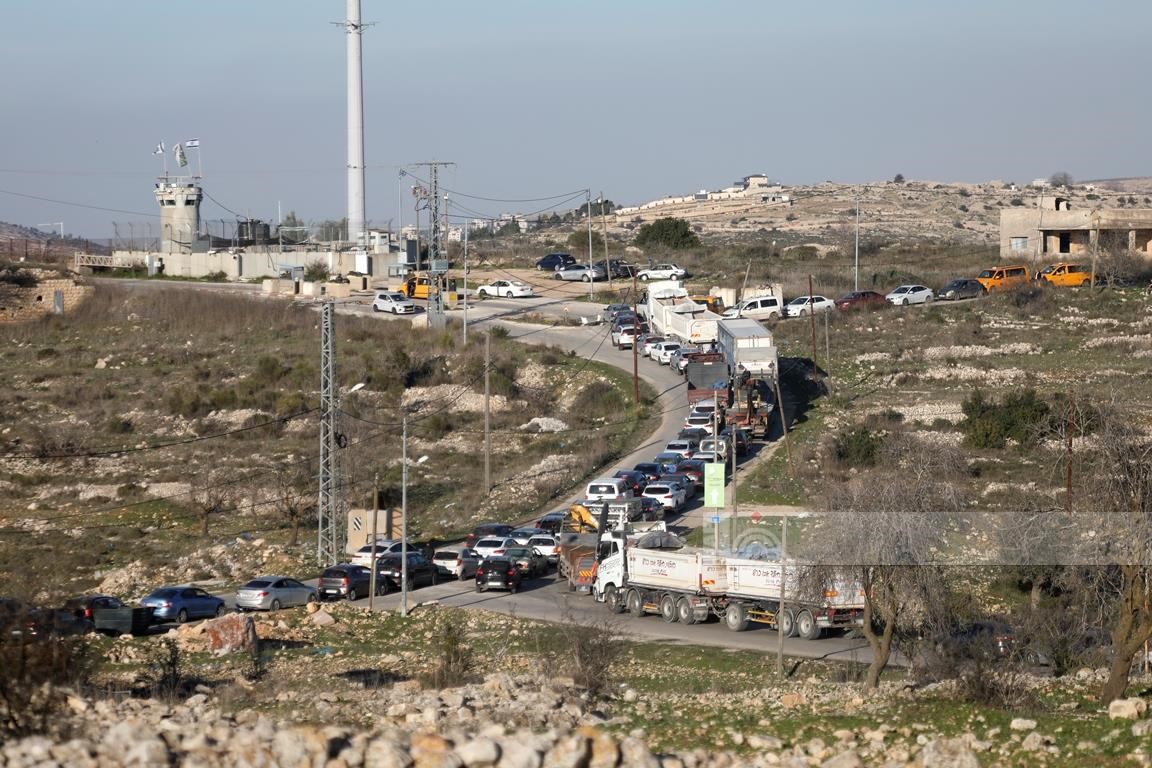GAZA, January, 20, 2024 (WAFA) – The UN Security Council held an open session on the Middle East, including the Palestinian issue, on Monday, chaired by Algerian Foreign Minister Ahmed Attaf, whose country chairs the Security Council this month.
UN Secretary-General Antonio Guterres said the ceasefire agreement in the Gaza Strip offers a "ray of hope" despite the many challenges.
He added that the United Nations is doing its part to ensure the rapid expansion of humanitarian operations, noting that more than 630 trucks loaded with humanitarian aid entered the Strip yesterday, including at least 300 heading north.
The Secretary-General urged the parties to ensure that this agreement leads to a permanent ceasefire in Gaza, adding that “it must be translated on the ground into at least four simultaneous actions: United Nations entities, including the backbone of our humanitarian response, UNRWA” – must be able to perform their functions unhindered; the expansion of the delivery of essential assistance and services requires safe conditions and a conducive operating environment, including allowing protective equipment, communications and the restoration of public order; people must be able to access life-saving assistance; and sufficient commercial supplies must be allowed into Gaza. Civilians must be protected, and those seeking to return to their communities must have safe passage.”
Guterres stressed that the Palestinian National Authority has indicated its readiness to assume its role and responsibilities in Gaza. He urged “collective support” for the establishment of arrangements that would enable the political, economic, social and administrative reunification of Gaza with the West Bank.
He noted that the situation in the West Bank continues to deteriorate due to Israeli airstrikes, ongoing illegal colony expansion and home demolitions. “I am deeply concerned about the existential threat to the integrity and contiguity of the occupied Palestinian territory in Gaza and the West Bank,” he added.
He said that “colony approvals have accelerated and senior Israeli officials are speaking publicly about formally annexing all or part of the West Bank in the coming months.”
“Any such annexation would constitute a very serious violation of international law,” he said. “It is clear that greater stability in the Middle East requires irreversible steps towards a two-state solution.”
In turn, Minister of State for Foreign Affairs and Expatriates Fareseen Shaheen said that the "glimmer of hope" that has begun to appear on the horizon now, and we hope that it will endure and succeed in a way that leads to a complete and final ceasefire with no return to aggression and the complete withdrawal of the occupation forces from the Gaza Strip, and the establishment of a political path based on international legitimacy resolutions that leads to the end of the occupation, and the implementation of what was in the advisory opinion of the International Court of Justice in accordance with the General Assembly resolution calling for the end of the occupation within one year.
In her speech to the Council, she called for the implementation of relevant UN resolutions, including Security Council Resolution No. 2735.
She stressed that the Gaza Strip is an integral part of the occupied Palestinian territory, and that the State of Palestine has legal and political jurisdiction over the Strip and all of the Palestinian territory occupied since 1967, including East Jerusalem, renewing the categorical rejection of "any attempts to cut off parts of our land or displace our people."
Shaheen said, "We confirm that the Palestinian government is ready to assume responsibility for managing the Gaza Strip alongside the West Bank, in cooperation with friendly countries and organizations And the sister, including the re-provision of basic health, education, water and electricity services, ensuring the return of the displaced to their homes and preparing for the reconstruction phase.
She stressed the commitment of the Palestinian government to manage the crossings in cooperation with the European Union and Egypt in accordance with the 2005 agreement. She welcomed any assistance in the field of training and equipping the Palestinian police and security forces.
For his part, Algerian Foreign Minister Ahmed Attaf stressed that the ceasefire agreement in Gaza was "long awaited in light of the implementation of the Israeli project in Gaza specifically and in the region in general."
He said that Gaza is no longer what it was after it was subjected to "crimes that claimed the lives of more than 46,000 civilians, most of whom were women and children" and after the horrific destruction that befell it and the demolition of all its pillars and capabilities.
He added, "Even if our council had previously failed to do justice to the Palestinian people and achieve their rights, it should not miss this historic moment today to assume all its responsibilities that the charter of our organization has entrusted it with."
He stated that this responsibility is not limited to addressing the repercussions of the "aggression that Gaza has suffered," but rather extends to include taking care of the essence of the conflict represented in achieving the Palestinian national project.
The Algerian minister added that "the ceasefire agreement is not the point of arrival, but rather the starting point, and it is also an opportunity whose success or failure depends on the extent to which it is exploited, employed, and built upon."
The Security Council called for focusing its efforts in the next phase on three main levels: the first is to consolidate the ceasefire agreement and follow up on its implementation; the second is related to the need for the Security Council to ensure that "the arrangements for the next day in the Gaza Strip" take into account the will of the Palestinians, enshrine their agreements and protect their aspirations to move forward in embodying their national project; and the third is related to the inevitability of building on the ceasefire agreement by launching a serious political process under the auspices of the United Nations with the aim of resolving the Palestinian-Israeli conflict.
The British Minister of State for the Middle East, Hamish Falconer, described the ceasefire agreement in the Gaza Strip as a "critical first step" towards a two-state solution, "which offers hope not only to the Palestinian and Israeli peoples, but to the entire world."
Referring to the tragic conditions in Gaza, Falconer said that the suffering there is "almost beyond imagination," noting that the onset of winter has exacerbated the humanitarian crisis. He stressed the importance of the agreement, explaining that this agreement paves the way for people to begin rebuilding their lives.
He called on the international community to build confidence and maintain momentum to turn the ceasefire into a “lasting peace,” and warned that “UNRWA is on the brink of collapse,” urging Israel not to create further complications that would hamper the agency’s work. “Millions of people depend on us,” he said, stressing the Council’s responsibility to ensure that vital aid reaches those in need. “We must not let them down,” he added.
Y.S




